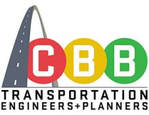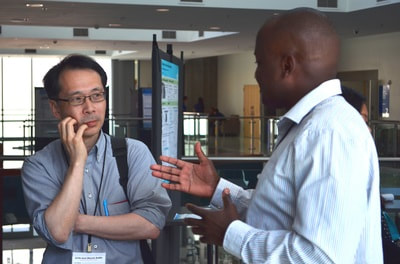Abstract submission is CLOSED for the 2024 Annual Meeting. If you missed the deadline and would like to present your work, please email us at [email protected]
A heartfelt 'Thank You' for the continued support of our abstract award sponsors!
Each year 10 of the highest scoring abstracts in five categories and the two best posters receive a $200 USD CASH presented during the IPATH Annual Meeting Awards Luncheon. Details are provided below. If you would like to sponsor an award in 2024, please email us at [email protected]
Each year 10 of the highest scoring abstracts in five categories and the two best posters receive a $200 USD CASH presented during the IPATH Annual Meeting Awards Luncheon. Details are provided below. If you would like to sponsor an award in 2024, please email us at [email protected]
PLEASE NOTE that we are using a NEW software platform for abstract submission. You should double check the following prior to submitting your abstract:
- If you had previously submitted an abstract and had an existing profile, you will need to create a NEW profile.
- Check the 'To Do List' in the upper right-hand corner of the screen.
- Double check ALL presenting and contributing author email addresses.
- Make sure to check your SPAM folder for system generated emails.
Submission of an abstract represents a commitment to participate in the IPATH Annual Meeting, irrespective of acceptance of an abstract. The opportunity to submit an abstract for consideration is available only to those who plan to attend the conference for educational and networking purposes and not to those who wish to attend exclusively for the opportunity to present. Presenters of accepted abstracts will be REQUIRED to register by the Early Registration deadline. Failure to register will result in the automatic withdrawal of the abstract.
ATTENTION STUDENTS
IPATH is dedicated to helping you succeed. For this reason, Pop-Up Workshops have been created to guide you through the process of developing a scientific abstract. The following 'How To' resources are available on the IPATH website:
IPATH is dedicated to helping you succeed. For this reason, Pop-Up Workshops have been created to guide you through the process of developing a scientific abstract. The following 'How To' resources are available on the IPATH website:
- Writing a Research Abstract
- Linking the Research Question to Research Methods
- Tips for Abstract Authors
Abstract Submission Guidelines
Each abstract considered for presentation at the IPATH Annual Meeting will go through a formal peer-review and scoring process. Final abstract scores are calculated as the average of three (3) individual peer-review assessments. Scientific/research abstracts and practitioner/policy/case study abstracts will be assessed separately. Only the highest scoring abstracts will be given the option for oral presentation. All others that are accepted will be presented as Pecha Kucha or a poster based on peer-review scoring and recommendations.
Authors will be asked to select and submit an abstract in their preferred presentation format:
Co-Authors
The author attending the IPATH Annual Meeting and presenting the abstract must submit the abstract under their name. If co-authors will be in attendance, either one of the authors may submit the abstract. The author submitting the abstract must be the presenter at the conference. This author will receive all communications from IPATH. Other authors are encouraged to attend but will not be considered as a presenter of the abstract at IPATH unless approved by the assigned session team members. Other authors listed on the abstract will be included in the on-line, printed program and on the MDPI Sustainability published abstract.
Invited Abstract Categories
Abstracts are invited on the general headings below with sub-headings indicating the specific categories; all within the overarching theme of transport and health. Note that an "Other" category will be included under each main heading. The overall theme is the impact of transport (and urban/rural) planning and design on quality of life, health and well-being in communities.
Transport and Health Behavior
Innovative Technologies
Transport and Health Impacts
Urban/Rural Planning
Abstract Submission Details
Excluding the title, your abstract should not exceed 400 words. Word counts will be automatically limited by the online submission software.
You will be asked to indicate your professional discipline. This information is important to ensure that each team has an equal mix of transdisciplinary professionals. If you consider yourself as fitting into more than ONE category, please indicate your university degree field of study.
Professional Category
You will be asked to self-identify what professional category your work falls under.
NOTE: If you are employed by an academic institution, you are NOT considered a practitioner.
Research Abstract Requirements
Case Study/Practitioner Abstracts
Relevant sub-headings are at the discretion of the submitting author. Case study and practitioner abstracts should be descriptive enough to outline the project or idea including the methods used and a statistical data analysis (if applicable) and include any outcomes of the work. The abstract is REQUIRED to show the human health impacts as it relates to quality of life, health outcomes, or well-being. Case Study/Practitioner Abstracts will be subjected to a different scoring criterion from the Research Abstracts.
General Abstract Guidelines
If you will be performing a content cut and paste, we recommend using the “paste as plain text” button in the tool bar along with the “custom character” button. If any erroneous characters remain you will be alerted upon submission and provided with the opportunity to amend the submission.
Cash Awards
Cash prizes ($200 USD) will be awarded to the two (2) highest scoring abstracts (including oral, pecha kucha and poster) and BEST poster. NOTE: Winners of a high abstract award will not be considered eligible to compete in the BEST poster award
Authors will be asked to select and submit an abstract in their preferred presentation format:
- Standard Oral (15 Minutes).
- Pecha Kucha - An oral presentation of 20 slides for 20 seconds each (6 minutes and 40 seconds in total). This is a fast-paced and FUN alternative! Visit http://en.wikipedia.org/wiki/PechaKucha for details.
- Poster - Presentation and judging will be completed on the session day assigned to each author.
- Session Proposals - If a team has 3-4 abstracts on a related topic, IPATH provides the opportunity for the authors to submit a full session proposal. Note that all abstracts are still required to be submitted through the on-line portal and go through the scientific peer review process. A summary of the session, all presenting authors, titles and abstract IDs should be emailed to: [email protected] by the abstract submission deadline.
Co-Authors
The author attending the IPATH Annual Meeting and presenting the abstract must submit the abstract under their name. If co-authors will be in attendance, either one of the authors may submit the abstract. The author submitting the abstract must be the presenter at the conference. This author will receive all communications from IPATH. Other authors are encouraged to attend but will not be considered as a presenter of the abstract at IPATH unless approved by the assigned session team members. Other authors listed on the abstract will be included in the on-line, printed program and on the MDPI Sustainability published abstract.
Invited Abstract Categories
Abstracts are invited on the general headings below with sub-headings indicating the specific categories; all within the overarching theme of transport and health. Note that an "Other" category will be included under each main heading. The overall theme is the impact of transport (and urban/rural) planning and design on quality of life, health and well-being in communities.
Transport and Health Behavior
- Active travel (i.e., walking and bicycling)
- Disruptive mobility & cultural shifts
- Methods, performance measures & outcomes
- Public education/public involvement
- Social marketing & other behavioral interventions
- Gender and Transport
Innovative Technologies
- Autonomous/connected vehicle technologies
- Transport Network Companies (TNC); Uber, Lyft and others
- Technologies to assist active travel (i.e., Wayfinding apps, etc.)
- Infrastructure adaptations & technologies
- Electric vehicles (including e-bikes)
- Renewable energies
Transport and Health Impacts
- Road safety danger reduction & injury
- Health/environmental impact assessments
- Air quality
- Noise pollution
- Water contamination
- Climate change
- Community severance
- Mental health
Urban/Rural Planning
- Complete/healthy streets/governance
- Aging populations
- Disability assisted mobility (paratransit)
- Planning & infrastructure challenges
- Built environment density, distance
- Monitoring & evaluation
- Socio-technical challenge
- City trials, Intervention studies and natural experiments
- Work/school travel plans
- Green/natural space (biodiversity)
- Environment/social justice/inequities
- Transport economics
- Infrastructure for transport beyond the private car (i.e., walking/cycling)
Abstract Submission Details
Excluding the title, your abstract should not exceed 400 words. Word counts will be automatically limited by the online submission software.
You will be asked to indicate your professional discipline. This information is important to ensure that each team has an equal mix of transdisciplinary professionals. If you consider yourself as fitting into more than ONE category, please indicate your university degree field of study.
- Health/Public Health
- Transport
- Urban Planning
- Other:________________
Professional Category
You will be asked to self-identify what professional category your work falls under.
NOTE: If you are employed by an academic institution, you are NOT considered a practitioner.
- Practitioner
- Researcher
- Undergraduate or Masters’ Student
- Doctoral Student
- Post-Doctoral Early Career Researcher (aged <35 years old or within 5 years of degree completion)
Research Abstract Requirements
- Research abstracts are limited to 400 words.
- All abstracts should describe a real-world study/intervention as opposed to a literature review and a hypothetical application. This means there MUST be a scientific investigation conducted.
- DO NOT include citations, graphs, tables or abbreviations.
- Authors are NOT permitted to use Artificial Intelligence (AI) or other Internet features to write the abstract.
- The abstract is REQUIRED to show the human health impacts as it relates to quality of life, health outcomes, or well-being.
- The abstract should be organized with the following headings:
- Background - General description and study objective.
- Methods - A detailed description of HOW the research was conducted, the methods used to conduct the research study, or the community involved.
- Results - The results section must include a formal statistical analysis of quantitative or qualitative research investigation (where appropriate). Hence, robust results should be presented. For quantitative studies, this would usually mean including statistics, such as confidence intervals. Abstracts stating that ‘results will be presented’ will not be considered (however results of ongoing analyses are acceptable). Results of a systematic review are acceptable.
- Conclusions - The conclusions should support the results.
Case Study/Practitioner Abstracts
Relevant sub-headings are at the discretion of the submitting author. Case study and practitioner abstracts should be descriptive enough to outline the project or idea including the methods used and a statistical data analysis (if applicable) and include any outcomes of the work. The abstract is REQUIRED to show the human health impacts as it relates to quality of life, health outcomes, or well-being. Case Study/Practitioner Abstracts will be subjected to a different scoring criterion from the Research Abstracts.
General Abstract Guidelines
- No references, tables or figures are permitted
- Use International characters only
- Type in normal sentence case DO NOT TYPE IN ALL CAPITAL LETTERS
- Do not use abbreviations - You may know what they mean, but we don't
- Use only accepted keyboard characters
- Separate each paragraph with one hard return
If you will be performing a content cut and paste, we recommend using the “paste as plain text” button in the tool bar along with the “custom character” button. If any erroneous characters remain you will be alerted upon submission and provided with the opportunity to amend the submission.
Cash Awards
Cash prizes ($200 USD) will be awarded to the two (2) highest scoring abstracts (including oral, pecha kucha and poster) and BEST poster. NOTE: Winners of a high abstract award will not be considered eligible to compete in the BEST poster award

Publication Opportunity
All accepted/presented abstracts will be published in an online supplement to the MDPI Journal of Sustainability as a Supplemental Issue. Based on the topic area of interest, selected abstract authors will be asked to submit a full manuscript to the following the conference. NOTE: YOU MUST PRESENT AT THE IPATH ANNUAL MEETING TO RECEIVE AN INVITATION TO PUBLISH. Submitted manuscripts will undergo a formal peer-review process. Accepted manuscripts will be published in the next suitable issue of the MDPI Sustainability and also as a virtual conference issue online. For more information, please contact
All accepted/presented abstracts will be published in an online supplement to the MDPI Journal of Sustainability as a Supplemental Issue. Based on the topic area of interest, selected abstract authors will be asked to submit a full manuscript to the following the conference. NOTE: YOU MUST PRESENT AT THE IPATH ANNUAL MEETING TO RECEIVE AN INVITATION TO PUBLISH. Submitted manuscripts will undergo a formal peer-review process. Accepted manuscripts will be published in the next suitable issue of the MDPI Sustainability and also as a virtual conference issue online. For more information, please contact







